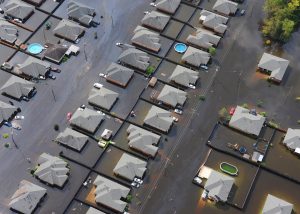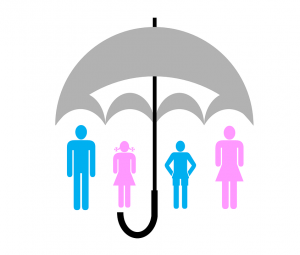Courtesy of iii.org
 In the event of a sudden, catastrophic event, you may have just minutes to gather your family and get out of your house—possibly for good. What would you take? Where would you go? Planning ahead for the worst can help minimize the impact of a tragedy and may even save lives. This five-step plan can help get you and your family on the road to safety.
In the event of a sudden, catastrophic event, you may have just minutes to gather your family and get out of your house—possibly for good. What would you take? Where would you go? Planning ahead for the worst can help minimize the impact of a tragedy and may even save lives. This five-step plan can help get you and your family on the road to safety.
Some of this information is also covered in the I.I.I.’s Know Your Plan app. Check it out for preparedness tips, handy checklists (including ones you can personalize yourself) and evacuation planning advice to cover a variety of disasters. It’s a great tool to help get you and your family—including pets—organized and ready to act more quickly if an emergency strikes.
For your evacuation planning:
1. Arrange your evacuation ahead of time
Don’t wait until the last minute to plan your evacuation.
- Identify where you can go in the event of an evacuation. Try to have more than one option: the home of a friend or family member in another town, a hotel or a shelter. Keep the phone numbers and addresses of these locations handy.
- Map out your primary routes and backup routes to your evacuation destinations in case roads are blocked or impassable. Try to have a physical map of the area available in case GPS satellite transmissions are down or your devices run out of power.
- Pre-arrange a designated place to meet in case your family members are separated before or during the evacuation. Make the location specific, for example, “meet at the big clock in the middle of town square” not “meet at the town square”. Ask an out-of-town friend or family member to act as a contact person for your family.
- Put all evacuation plans in writing along with pertinent addresses and phone numbers and give them to each member of the family. Note that many home printer inks are NOT waterproof, so take appropriate precautions to ensure legibility.
- Listen to the National Oceanic and Atmospheric Administration (NOAA) Weather Radio or local radio or TV stations for evacuation instructions. If advised to evacuate, do so immediately.
2. Plan what to take
Many families choose to have a “go bag” ready with some of these critical items. Consider packing the following for an evacuation.
- Prescriptions and other medicines
- First aid kit
- Bottled water
- Flashlight, battery-powered radio and extra batteries
- Clothing and bedding (sleeping bags, pillows)
- Special equipment for infants or elderly or disabled family members
- “Comfort items,” such as special toys for children
- Computer hard drive and laptop
- Cherished photographs
- Pet food and other items for pets (litter boxes, leashes)
3. Create a home inventory
Making a home inventory and having it handy will be useful if you need to apply for disaster aid. It will also:
- Help ensure that you have purchased enough insurance to replace your personal possessions.
- Speed the insurance claims process, if necessary
- Substantiate any losses for income tax purposes.
4. Gather important documents
Keep the following important documents in a safe place that you can easily access and take with you in the event of an evacuation. And while for most of these you’ll need an original, it’s a good idea to make digital copies and keep them with you on a thumb drive, as well:
- Prescriptions
- Birth and marriage certificates
- Passports
- Drivers license or personal identification
- Social Security cards
- Insurance policies — homeowners, auto, life and any others
- Recent tax returns
- Employment information
- Wills and deeds
- Stocks, bonds and other negotiable certificates
- Financial information such as bank, savings and retirement account numbers and recent tax returns
- Home inventory
5. Take the 10-minute evacuation challenge
To ensure that you and your family are fully prepared for a sudden evacuation, do a real-time test. Give yourself just 10 minutes to get your family and belongings into the car and on the road to safety. By planning ahead and practicing, you should be able to gather your family members and pets, along with the most important items they will need, calmly and efficiently, with a minimum of stress and confusion.
Next steps link: Watch two families practice a 10-minute evacuation.



